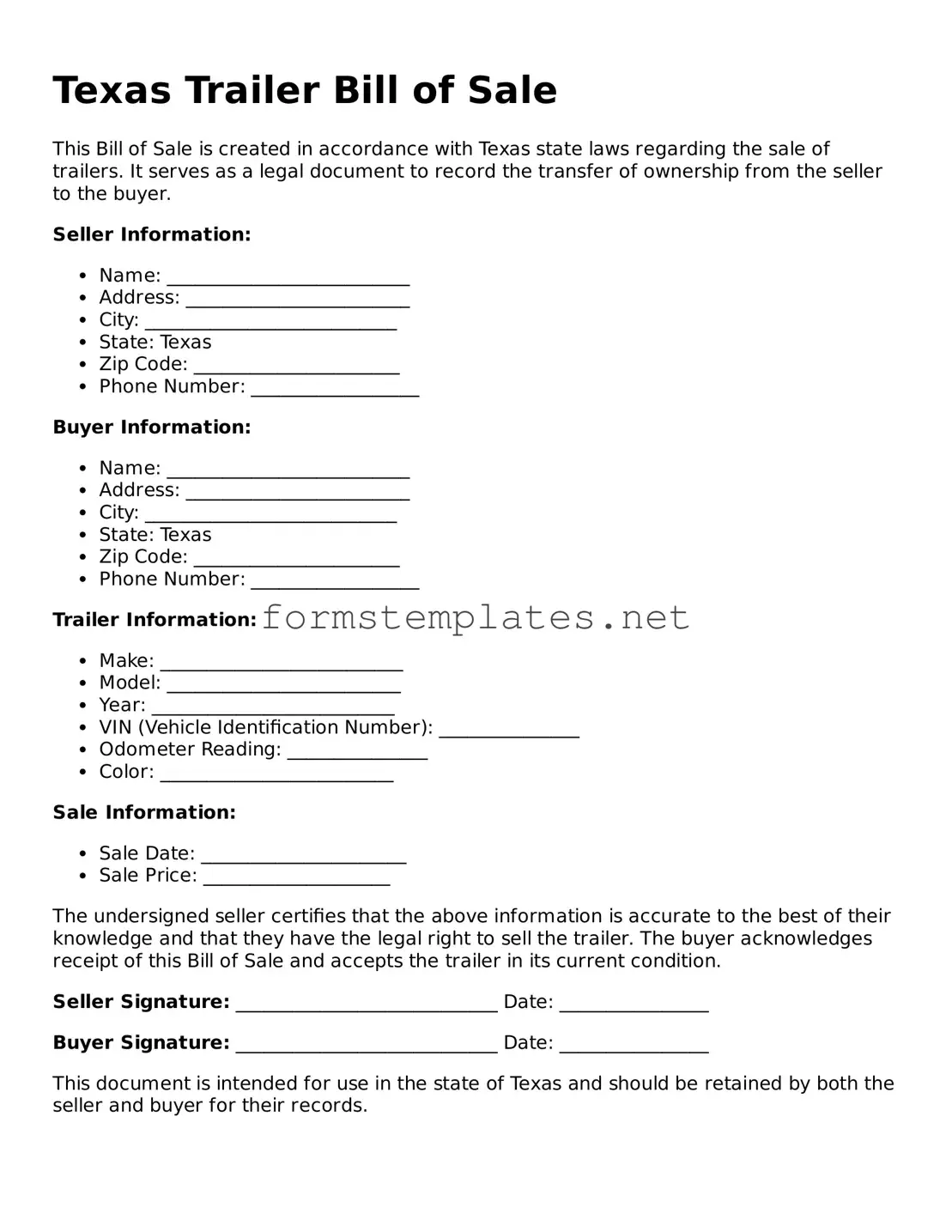Attorney-Approved Texas Trailer Bill of Sale Template
The Texas Trailer Bill of Sale form is a legal document that records the sale and transfer of ownership of a trailer in Texas. This form serves as proof of the transaction, detailing essential information about the buyer, seller, and the trailer itself. Understanding its importance can help ensure a smooth transfer process and protect both parties involved.
Open Editor Now

Attorney-Approved Texas Trailer Bill of Sale Template
Open Editor Now

Open Editor Now
or
⇓ PDF Form
Your form still needs attention
Finalize Trailer Bill of Sale online — simple edits, saving, and download.